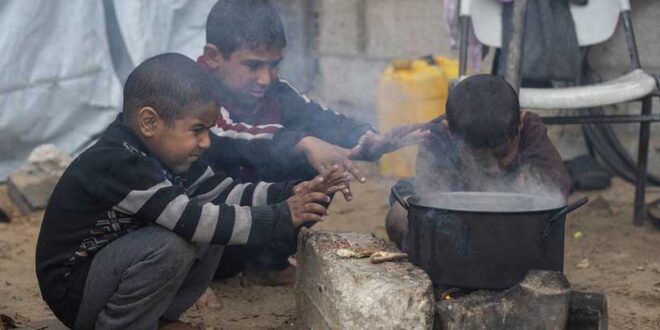The signing of the Wadi Araba Peace Treaty in 1994 between Jordan and Israel marked a historic moment that appeared to promise stability in a turbulent region. The treaty, which made Jordan the second Arab country to establish official ties with Israel, resolved border and water disputes and recognized Jordan as the custodian of Palestinian holy sites, especially Al-Aqsa Mosque. However, Israel’s increasingly aggressive and unrestrained policies in recent years—from relentless settlement expansion in the West Bank to provocative actions in Jerusalem and escalating tensions in Gaza—have pushed this strategic relationship to the brink. With a population largely of Palestinian origin and a sensitive geopolitical position, Jordan now finds itself in a bind, struggling to balance national interests with mounting internal and external pressures. This growing crisis threatens not only the bilateral relationship with Israel but also the broader stability of the Middle East.
A Fragile Alliance Amid Tensions
Relations between Jordan and Israel have oscillated between covert cooperation and open confrontation since Israel’s establishment in 1948. Prior to the 1967 war, Jordan controlled the West Bank and East Jerusalem and played a central role in administering the Palestinian holy sites. The Arab defeat in the Six-Day War and Israel’s occupation of these territories weakened Jordan’s position and laid the groundwork for future tensions. The 1994 Wadi Araba Treaty was an attempt to formally rebuild relations, settling border disputes, managing shared water resources like the Jordan River, and enhancing security cooperation. It also recognized Jordan’s custodianship over Jerusalem’s holy sites—an essential pillar of Jordanian national and religious identity. Yet from the outset, this relationship faced resistance from Jordanian public opinion, particularly among citizens of Palestinian descent who viewed Israel’s treatment of Palestinians as intolerable.
The Deliberate Erosion of a Relationship
Over the past decade, Israeli policies have systematically undermined the foundations of the Wadi Araba Treaty. The rapid expansion of illegal settlements in the West Bank—highlighted in UN reports—constitutes a clear violation of international law, including UN Security Council Resolution 2334. These settlements, accompanied by the demolition of Palestinian homes and forced evictions in areas like Sheikh Jarrah, are widely seen as an attempt to alter the demographic composition of the West Bank and East Jerusalem. These actions have not only inflamed public anger in Jordan but also placed the Jordanian government in a difficult position, given that over half its population is of Palestinian origin and perceives these moves as a betrayal of the Palestinian cause.
Israeli actions in Jerusalem, particularly around Al-Aqsa Mosque, have further undermined Jordan’s role as custodian of the holy sites. From 2020 to 2023, numerous reports documented Israeli forces entering the Haram al-Sharif compound, restricting Palestinian access, and tacitly supporting extremist Jewish groups conducting religious rituals there. These acts, which blatantly violate the Wadi Araba agreements, have deeply humiliated Jordan in the eyes of its public and triggered large protests in cities like Amman and Irbid. For example, during Ramadan 2023, Israel’s decision to limit worshippers’ access to Al-Aqsa was fiercely condemned by Jordan, which labeled it “an intolerable assault on religious rights.”
Relentless Assaults on Gaza and Public Outrage
Israel’s repeated and indiscriminate military operations in Gaza—marked by widespread civilian casualties, especially among women and children—have ignited a wave of anger and disgust in Jordan. The harrowing images and massive destruction in Gaza, extensively covered in Jordanian media, have intensified public solidarity with Palestinians and increased pressure on the Jordanian government to adopt a tougher stance against Israel. These assaults—recognized by organizations such as Amnesty International as serious violations of international humanitarian law—are, in light of the International Court of Justice’s genocide ruling and Netanyahu’s arrest warrant, no longer seen as legitimate military actions but as part of a deliberate, structured campaign of violence aimed at genocide against the Palestinian people.
From Diplomatic Isolation to Regional Instability
Israel’s aggressive policies have not only strained its relationship with Jordan but also jeopardized its standing in the region and endangered broader Middle East stability. Diplomatically, Jordan—one of Israel’s few formal Arab allies—has repeatedly been forced to respond. These reactions include the summoning of the Israeli ambassador in 2022, threats to review parts of the Wadi Araba Treaty, and repeated appeals to the UN for intervention. Such tensions have pushed Israel closer to regional isolation, especially at a time when normalization deals with other Arab states like the UAE and Bahrain remain fragile.
Domestically, Israeli actions have fueled public dissatisfaction in Jordan and posed internal challenges to the monarchy. Mass protests in 2021 and 2023, some demanding the annulment of the peace treaty, have exposed a deep rift between the government and its people. These demonstrations, particularly intense in Palestinian-majority cities like Zarqa and Irbid, risk triggering domestic instability—especially in a country already hosting millions of Palestinian and Syrian refugees. Instability in Jordan would be disastrous not just for Israel but for the entire region, given Jordan’s role as a geopolitical buffer zone amid regional crises.
Strategic Realignment and Regional Consequences
Regionally, Israel’s policies may push Jordan to reconsider its strategic alliances. While Jordan is unlikely to sever ties with Israel outright in the short term—due to its reliance on Western economic and military aid, especially from the U.S.—continued tensions may gradually drive Amman to strengthen ties with alternative regional players such as Turkey or Qatar. Even a slow pivot in this direction could alter the Middle East’s balance of power and place Israel in an increasingly vulnerable position.
A Policy Leading to Isolation
Israel’s aggressive policies—from illegal settlements and provocations in Jerusalem to military assaults on Gaza—are driving its strategic alliance with Jordan toward collapse. These actions, in clear violation of international law and bilateral agreements, have weakened Jordan’s custodianship of holy sites and pushed public outrage to a boiling point. The consequences extend beyond bilateral ties: diplomatic isolation, potential instability in Jordan, and heightened regional tensions are just some of the costs Israel is incurring. As Jordan tries to navigate internal pressures and geopolitical necessities, Israel’s current trajectory is leading it deeper into isolation and crisis. The future of this fragile alliance has never been more at risk—and it is Israel’s destructive policies that are bringing it to the edge.
 Geostrategic Media Political Commentary, Analysis, Security, Defense
Geostrategic Media Political Commentary, Analysis, Security, Defense





